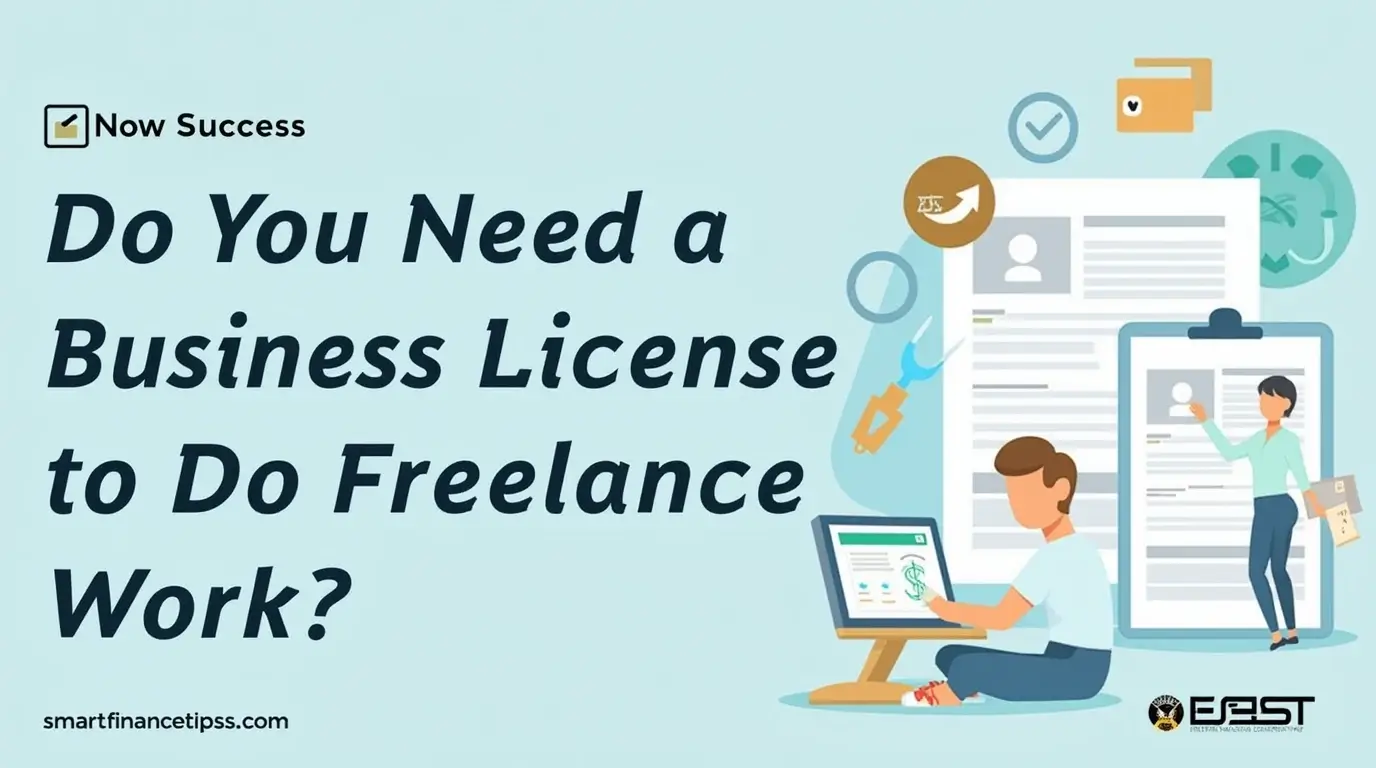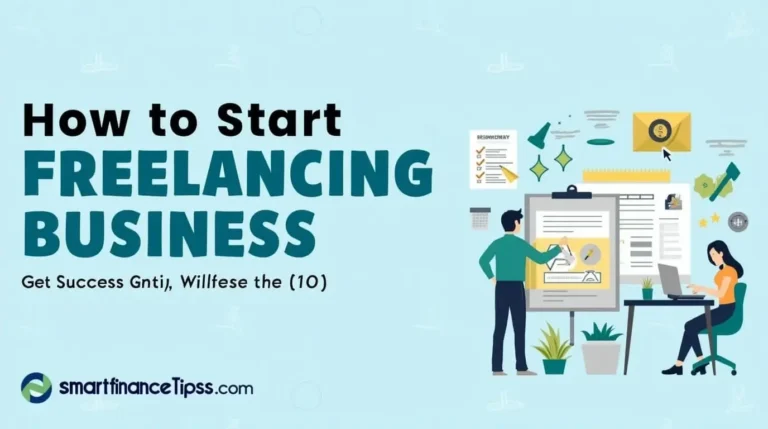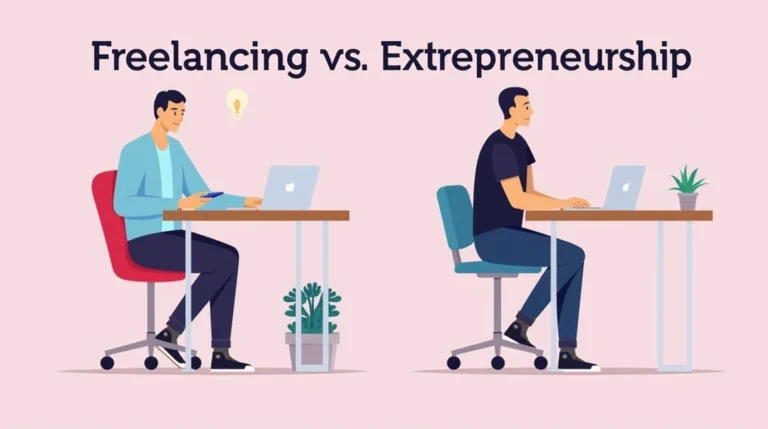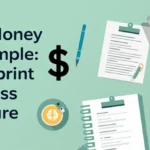The Best Fluffy Pancakes recipe you will fall in love with. Full of tips and tricks to help you make the best pancakes.
Table of Contents
Introduction to Freelancing

do you need a business license to do freelance work
Freelancing is a contemporary work arrangement in which individuals offer their skills and expertise to multiple clients rather than being tied to a single employer. This working model has gained substantial popularity in recent years, with many professionals opting for the flexibility and autonomy that freelancing provides over conventional employment. Various types of freelance work are available, encompassing diverse fields including writing, graphic design, web development, consulting, and marketing, among others. This variety enables individuals to leverage their unique talents in ways that suit their preferences and lifestyle.
One of the driving factors behind the rise of freelancing is the desire for work-life balance. Read more about: how to start freelancing business; Many freelancers appreciate the ability to set their own schedules and choose their projects, allowing them to work in an environment that fosters creativity and productivity. Additionally, advancements in technology and the rise of digital platforms have made it easier than ever to connect with clients across the globe, further contributing to the appeal of a freelance career. Platforms such as Upwork, Fiverr, and Freelancer have propelled the growth of the freelance economy by providing accessible means for both clients and freelancers to engage in business transactions.
Moreover, the COVID-19 pandemic has accelerated this trend, leading to an increased number of individuals reevaluating their career paths. Many have turned to freelancing as a viable alternative to traditional employment, seeking greater independence and control over their careers. This shift has not only reshaped individual careers but has also influenced labor market dynamics, with freelancing becoming a vital component of the economy. As this trend continues to evolve, the question surrounding the necessity of a business license for freelancers has become increasingly relevant, meriting further exploration.
Understanding Business Licenses
A business license is a legal authorization that allows individuals or companies to engage in business activities as prescribed by local, state, or federal laws. The primary purpose of a business license is to ensure that the business operations comply with regulatory standards and are conducted in a lawful manner. Obtaining a business license is a crucial step for freelancers and entrepreneurs, as it legitimizes their work and can protect them from legal repercussions.
There are various types of licenses that may be required based on the nature of the freelance work. For instance, a freelance graphic designer may need a general business license, while a photographer might also require specific permits to capture images in public spaces or during events. Additionally, some professions, such as those in health services or legal fields, often necessitate specialized licenses or certifications. Understanding which licenses are applicable is vital for freelancers, as the requirements can vary significantly by location and industry.
Having a business license is important for several reasons. Firstly, it demonstrates professionalism and builds trust with clients, as it indicates that the freelancer is committed to adhering to local laws and regulations. This credibility can enhance a freelancer’s reputation and lead to more opportunities and client referrals. Furthermore, operating without a required business license can result in hefty fines, business closure, or other legal issues that may hinder one’s ability to work effectively. Therefore, it is essential for freelancers to research and secure the appropriate licenses necessary for their specific line of work, ensuring legal compliance while enhancing their professional standing.
When Freelancers May Need a Business License

Freelancers operate within a diverse landscape, providing various services across numerous industries. The necessity for a business license can depend upon several factors, including income levels, the nature of services offered, and local regulations. Understanding these nuances is essential for freelancers to ensure compliance with applicable laws.
One of the primary considerations is the level of income generated through freelance work. Many states require individuals to obtain a business license once their income surpasses a certain threshold. This threshold can vary by jurisdiction but is often set to encourage proper registration of businesses, including freelance operations. Failing to secure the necessary licenses can lead to penalties that may exceed the initial costs associated with licensing.
Moreover, the types of services offered can influence the licensing requirements. For instance, freelancers in fields such as graphic design, writing, or consulting may have different regulatory frameworks dictating whether a license is necessary. Certain specialized professions, like healthcare, legal, or financial services, also frequently necessitate professional licenses in addition to a business license. Therefore, it is crucial for freelancers in these sectors to conduct comprehensive research into state and local laws governing their professions.
Additionally, specific state or local regulations may impose licensing requirements regardless of income or type of service. Some locales require freelancers to register their business with the city or county government, even if they operate from home. This registration process can vary, so freelancers need to verify local ordinances and regulations pertinent to their circumstances.
In conclusion, freelancers should evaluate their income, the nature of their services, and their locality’s legal requirements to ascertain the necessity of a business license. By doing so, they can operate with greater assurance and adhere to the regulations that govern their freelance business.
Freelance Work Without a Business License
Freelancers often find themselves navigating the complex landscape of legal requirements, including the necessity of a business license. However, there are specific situations in which one can legally operate as a freelancer without obtaining a traditional business license. Understanding these exceptions can help freelancers effectively manage their work while remaining compliant with local regulations.
Firstly, the type of freelance work performed significantly influences the necessity for a business license. Freelancers engaged in creative fields, such as writing, graphic design, or photography, may not need a business license if their work is considered “hobby” income. In many jurisdictions, if a freelancer’s income does not exceed a certain threshold or if the work doesn’t constitute regular or ongoing business operations, a license may not be required. For example, if you are providing services occasionally and not heavily invested in marketing or securing clients, this may fall under hobby income.
Additionally, freelancers working for a single client or a limited number of clients may also operate without a business license in some areas. This is typically applicable when services are offered on a casual basis rather than through a formal business entity. It is crucial to review local regulations to determine how many clients one can engage without triggering the need for a business license.
Moreover, in some states or municipalities, freelancers who operate solely from their residence in a casual capacity might not be required to secure a business license. Nonetheless, it is advisable always to check with local authorities to ensure compliance with applicable laws and to ascertain if specific permits or zoning regulations might still apply.
In summary, while many freelancers assume that a business license is a prerequisite for operation, there are notable exceptions based on income levels, client structure, and the nature of the work performed. Therefore, it is important to explore the legalities surrounding freelance work in your area to better understand when a business license might not be necessary.
Checking Local Regulations

As a freelancer, understanding local regulations regarding business licenses is a critical step in ensuring compliance with the law. The requirements can vary significantly based on location, which makes it essential for freelancers to do thorough research. A strategic approach to this task can help you navigate the often complex legal landscape. Start by identifying the governing body in your area responsible for business licenses, typically a local government office or a department dedicated to business operations.
Next, visit the official website of your local government. Most municipalities have resources specifically for business owners, including guidelines on whether a business license is necessary for freelance work. Look for an FAQ section or specific documentation that outlines licensing requirements for freelancers. Additionally, some areas may offer online platforms where you can search for applicable licenses based on your business type and location.
Another effective method is to contact your local chamber of commerce or a small business development center (SBDC). These organizations often have valuable information regarding regulations and can guide you through the licensing process. They can also provide resources that highlight the steps necessary for compliance, such as obtaining permits or registering your business name if required.
It is also advisable to check industry-specific regulations that might apply to your freelance services. Different professions may impose unique licensing requirements, particularly in fields such as healthcare, real estate, or finance. Consulting with professionals in your industry can offer additional insights and help you stay updated on any changes in local laws.
In conclusion, taking the initiative to research local regulations is vital for freelancers. By leveraging online resources, contacting local organizations, and understanding industry-specific requirements, you can effectively navigate the necessary steps to ensure you meet all legal obligations for your freelance business.
Consequences of Not Having a Business License
Operating as a freelancer without the appropriate business license can lead to a variety of legal and financial repercussions. Firstly, many jurisdictions implement strict licensing requirements. Failing to comply can result in hefty fines, which can vary significantly depending on local regulations. In some cases, these penalties can escalate quickly, creating a financial burden for the freelancer who may already be experiencing cash flow challenges typical in the early stages of freelance work.
Furthermore, the risk of facing legal actions is considerable. Operating without a business license may expose the freelancer to lawsuits or enforcement actions by local authorities or regulatory bodies. Such legal challenges can not only deplete financial resources due to potential legal fees but may also consume valuable time that could otherwise be dedicated to honing one’s skills and growing the business. This distraction can lead to a loss of clients or missed opportunities, further hindering professional growth.
The implications extend beyond immediate financial penalties; a freelancer without a business license might encounter difficulties in establishing credibility and trust with potential clients. Many businesses require proof of a valid license before engaging a freelancer for services. This lack of legitimacy can severely limit the availability of future projects and collaborations, thereby restricting income potential.
In conclusion, the costs of not securing a business license as a freelancer can reverberate through various aspects of one’s professional life. From financial penalties and legal complications to damaging one’s reputation and limiting opportunities, the stakes are notably high. Therefore, it is advised for all freelancers to ensure they understand the licensing requirements in their jurisdiction and comply accordingly to avoid these adverse consequences.
How to Obtain a Business License

Obtaining a business license is a crucial step for freelancers who wish to operate legally and uphold professional standards. The process to acquire a business license may vary depending on your location and the nature of your freelance work; however, there are essential steps that remain consistent across most jurisdictions.
Firstly, it is imperative to determine the type of business license you need. This often depends on your specific freelance activity, such as graphic design, writing, consulting, or any other service. Common types of licenses include general business licenses, professional licenses, or home occupation permits. Research your local government or the appropriate regulatory body to find detailed information concerning the necessary type of license.
Once you have identified the appropriate licensing requirements, the next step is gathering the necessary paperwork. Typically, this might include personal identification, proof of address, and sometimes additional documents related to your business model, such as contracts or business plans. Ensure that you have these documents organized and easily accessible to streamline your application process.
After preparing your documentation, you will need to submit your application, which might be available online or in-person, depending on local regulations. Most jurisdictions will require a fee that can vary widely based on the license type and location. It is important to verify the cost beforehand to avoid unexpected expenses.
The timeframe for receiving a business license can differ; some applications may be processed within a few days, while others could take several weeks. To enhance the likelihood of a swift approval, double-check that all forms are accurately filled out and that you have met every requirement specified by local authorities. In summary, by following these structured steps, freelancers can effectively navigate the application process and secure their business license, ensuring compliance and setting a solid foundation for their freelance career.
Alternatives to a Business License
When considering the intricacies of freelancing, many individuals ponder the necessity of a business license. However, several alternatives exist that can facilitate the operation of freelance work without the need for a traditional business license. One prominent option is to operate as a sole proprietor. This structure is straightforward and often requires minimal effort to establish. A sole proprietorship enables freelancers to conduct business under their name and report income on their personal tax returns, thus simplifying the taxation process. It’s worth noting that while a formal business license might not be required for sole proprietors in various jurisdictions, local regulations should always be verified to ensure compliance.
An additional alternative for freelancers is to leverage platforms that provide built-in legal coverage for freelance work. Many of these online marketplaces—such as Upwork, Fiverr, or Freelancer—offer protections that can substitute for the guarantees a business license might provide. By using these platforms, free-lancers receive access to contracts, client vetting, and even payment protection, which can help mitigate risks associated with free-lance work. This route alleviates the immediate pressure of navigating the complex licensing landscape, allowing free-lancers to focus on delivering high-quality services to their clients.
Moreover, some free-lancers choose to establish themselves as independent contractors, particularly if they are engaged in projects for a single client on a contract basis. Independent contractors often operate under agreements that outline terms and conditions, thus reducing the necessity for traditional licensing. While these alternatives serve to empower free-lancers in managing their businesses responsibly and effectively, it remains crucial to remain informed about local laws and regulations to avoid any potential issues that may arise from operating without a formal business license.
Conclusion and Final Thoughts

Determining whether a business license is required for free-lance work is a crucial consideration for anyone engaging in self-employment. Through our discussion, we have highlighted that the necessity of a business license can vary greatly depending on several factors, including location, type of free-lance services offered, and local regulations. It is essential for freelancers to understand that many jurisdictions enforce specific licensing requirements to regulate various professions.
Free-lancers should begin by researching their local government rules and regulations, as the need for a business license may vary from one municipality to another. Additionally, certain industries or professional services might necessitate specific types of licensing or permits. For instance, free-lancers in sectors such as healthcare, legal services, or finance typically encounter stricter licensing protocols than those in creative fields, like graphic design or writing.
Furthermore, it is wise for free-lancers to consider their business structure—whether operating as a sole proprietor, an LLC, or another entity—as this can influence licensing obligations. Seeking advice from a legal or business professional can provide clarity on compliance requirements and help free-lancers avoid potential penalties associated with unauthorized operations.
Ultimately, ensuring compliance with local regulations is vital for maintaining the legitimacy of a freelance business. As you navigate your free-lance journey, take the time to introspect and evaluate your unique situation. By doing so, you can enjoy the benefits of freelancing while adhering to necessary legal frameworks, fostering a sustainable and successful career.
Did You Like Our Article
i like this poste you help me
. We encourage readers to take actionable steps towards establishing their emergency fund, making a commitment to their financial future. Doing so is not just a precaution; it is a proactive strategy that lays the groundwork for a secure and stress-free financial life.
ai monetization artificial intelligence blogging guide bubble cryptocurrency business license business plan cryptocurrency investing debt strategies decentralized finance electronic fraud emergency fund financial fund freelance business freelancing business freelancing entrepreneurship gold investment home earnings investing gold investing technology investment methods investment stocks invest stocks make money mobile app money blogging money management money manager money online personal budgeting personal finance project ideas real estate remote work savings importance savings plan side business small business small capital small investments startup success stock investing stock market









